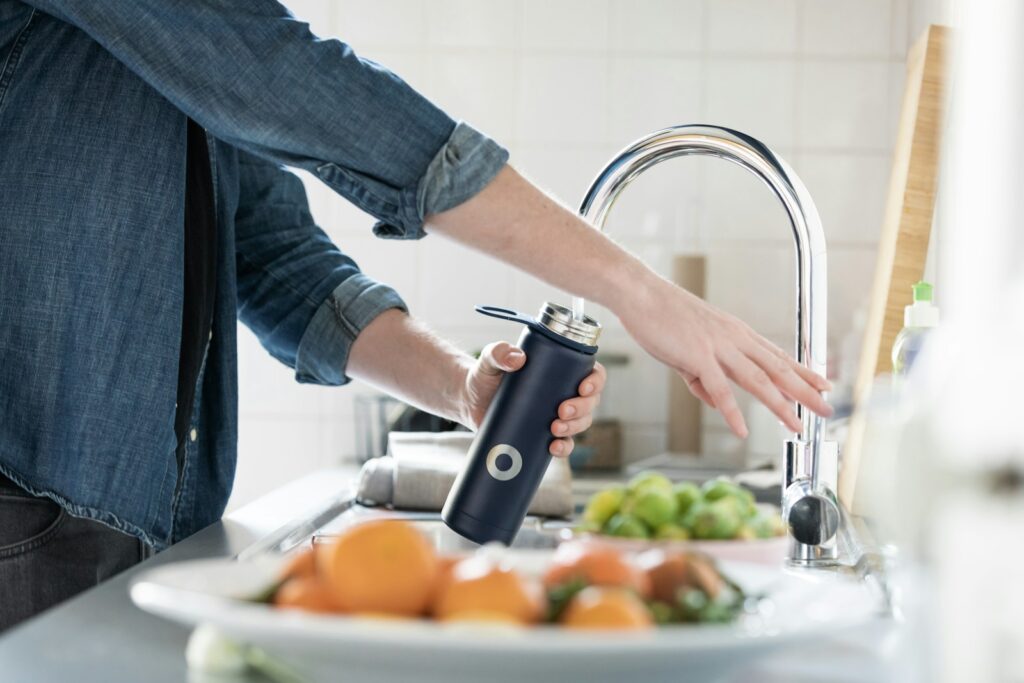Everyone needs to stay hydrated, but it is especially important for seniors. When we are older, our bodies naturally hold less water, so we don’t always feel thirsty and do not realize when we might have to drink more fluids. Some of the health issues that can occur when you become dehydrated include mild fatigue, kidney problems, and even confusion. The good news is that there are some simple things you can do to keep seniors hydrated, comfortable, and healthy right at home.
In this blog, we’ll share some practical tips for staying hydrated, while at the same time making sure that it’s not too much of an overwhelming task for seniors to get the fluids they need.
Why Hydration is Important for Seniors
When it comes to seniors, hydration affects almost every part of health. Body temperature and the lubrication of joints is affected by water, as is the process of digestion. The problem, however, is that the aging body processes fluids differently. Their body dehydrates much more easily, especially with health conditions or medications that impact fluid retention.
Seniors are often unaware of dehydration and it can sneak up on them, when they start to notice symptoms like dizziness, confusion or dry skin they might be mistaken for something else associated with aging. That’s why you need to get a routine built around hydration.
Make Water Easily Accessible
A simple way to make hydration better is to simply make water easily accessible during the day. Have a bottle or glass of water nearby so they can easily drink water whenever they are thirsty. Water placed in a visible spot — next to a favorite chair, perhaps? — or using a spill proof water bottle can encourage seniors to drink regularly for those with mobility issues or memory concerns.
If plain water isn’t their thing, try adding some slices of lemon, cucumber, or splash of juice to give it some flavor without added sugar.
Eating Hydrating Foods
Staying hydrated isn’t just about drinking lots of water — eating hydrating foods plays a role too. There are many fruits and vegetables that are high in water content and will help you hydrate. Try incorporating these into daily meals or snacks:
- Cucumbers: Cucumbers are composed of about 95 percent water and are delicious in salads, as a snack, or just about anywhere.
- Watermelon: This fresh fruit is 90 percent water and is a delicious means to elevate a person’s fluids.
- Oranges and Grapefruits: Citrus fruits are hydrating as well as loaded with vitamins.
- Soups and Broths: a warm bowl of a clear broth based soup can boost hydration and be comforting, especially in the colder months.
Adjusting meals with these foods as snacks makes it easier for seniors to get the daily fluid intake without having to feel like they’re constantly drinking water.
Establish a Drinking Routine
Hydration is all about R-O-U-T-I-N-E. Small amounts of water several times a day is much easier for seniors to be encouraged to drink instead of large amounts all at once. You can consider setting up a routine that involves water during regular everyday activities —e.g. water after a meal, when taking medicines or watching TV. It can make it a habit making and prevent chances of dehydration sneaking in.

To get seniors to take a sip through the day, alarms or gentle phone or clock reminders can be used.
Limit Caffeine and Alcohol
A cup of coffee or tea as part of the daily schedule is not bad, but too much caffeine or alcohol can be dehydrating. Caffeine is a diuretic, which can exaggerate the requirement to pee, resulting in fluid loss. Instead encourage moderation when it comes to caffeinated drinks, like coffee, tea, and soda, etc.
As with alcohol, too much of it dehydrates you so if you use it, drink loads of water along with it. Encourage seniors to always try to have a glass of water when having any caffeinated or alcoholic beverage for them to maintain their fluid levels.
Pay Attention to the Weather
The hydration needs depend on the time of the season or weather. To help compensate for perspiration, seniors need to drink more during the hot summer months when they are more likely to sweat. However, cold months can lead seniors to believe they don’t need to drink as much water as they should, but it is also true that indoor heating dehydrates the body.
Push seniors to be mindful of how they feel regardless of the weather. You can use urine color as a very simple measure of hydration: pale yellow means well hydrated, dark yellow or amber indicates dehydration.
Watch for Signs of Dehydration
You can be as careful as you like, but sometimes dehydration occurs anyway. Which is why, it’s important to watch for its common signs:
- Dry mouth or cracked lips
- Dizziness or lightheadedness
- Fatigue or confusion
- Less frequent urination or dark urine.
If you see these symptoms, you can encourage your loved one to immediately start increasing their fluids intake. And seek medical advice if it is severe.
Our Personalized care plans, at 1st Care Community for your loved ones are safe, comfortable, and well cared for, where we take every aspect of their health seriously. To learn more about how we are here to support you and your family with expert home care solutions that cater to your loved one’s needs, visit 我们的网站. Together let’s keep your loved ones thriving!


